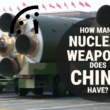Over the past month, as this roundtable has unfolded, South Asia has sometimes seemed on the brink of war. On September 18, in the Uri attack, militants killed 18 Indian soldiers in Indian-controlled Kashmir. Afterwards, New Delhi and Islamabad went back and forth about whether India responded to the attack with surgical strikes on Pakistani territory. (India said yes, Pakistan claimed otherwise). At times the two sides argued over the very definition of "surgical strikes."
Meanwhile, my fellow roundtable participants examined India-Pakistan relations primarily through one lens—that of US involvement in the region.
To be sure, when tensions erupt between nuclear-armed adversaries in a conflict-prone zone, a superpower's regional role is far from irrelevant. But my colleagues Rabia Akhtar and Mario Carranza have portrayed Washington's role in South Asia in dichotomous terms: Akhtar has called for the United States to disengage while Carranza has encouraged Washington to behave like a helicopter parent to the South Asian rivals. Neither Akhtar nor Carranza seems to account for a changing geopolitical reality—the United States, frustrated with Islamabad's spotty performance on counterterrorism, has drawn perceptibly closer to New Delhi. I wrote in my second essay that Washington now appears willing to "establish a new strategic axis in Asia—with the United States, India, Japan, and South Korea countering Russia, China, Pakistan, and North Korea." I stand by that assessment, and I would add that while Washington has too much at stake in Afghanistan and in the fight against Islamist terrorism to disengage from Southern Asia any time soon, the United States also has too many commitments in regions such as Northeast Asia, the Middle East, and the Horn of Africa to increase its involvement in South Asia beyond present levels. So instead of focusing on Washington's role in the region, it would be more useful to examine practical steps that could prevent intentional or inadvertent escalation of bilateral conflicts from the conventional to the nuclear level.
Or, to look at things from a different angle, one might ask how Pakistan can be prevented from imploding. Unfortunately, it doesn't seem unrealistic today that the fragile Pakistani state might fall apart, giving rise to Islamist terrorism that could destabilize the region. This danger now seems especially acute because of Pakistan's regional isolation—Washington is withholding the support that it has traditionally supplied to Islamabad, and a regional cooperation summit scheduled for November in Pakistan was postponed indefinitely after a number of South Asian nations elected to boycott it. Tensions are growing as well between Pakistan's military and its civilian leadership.
A Pakistani implosion would also exacerbate nuclear proliferation risks—could Pakistan as a failed state become a key provider of nuclear weapons or radioactive materials to unstable regimes? Pakistan's proliferation record is flawed, as exemplified by the A.Q. Khan network. Islamabad's traditionally close ties with Saudi Arabia—as well as Riyadh's complicated relationship with Washington and its reputed interest in nuclear weapons—provide great cause for concern. Recent reports of Islamabad's possible assistance to North Korea's nuclear program only ring more alarm bells. Averting a Pakistani implosion is far more critical than is precisely determining the optimum level of US involvement in South Asia.
In my first essay, I outlined three concrete steps that India and Pakistan might jointly take toward nuclear stability in the region. These steps included cooperating on nuclear security, improving the region's cybersecurity environment, and making a joint commitment not to conduct additional nuclear tests. Steps such as these will be difficult to enact given current bilateral tensions, but they are not completely unimaginable. Though Pakistan recently criticized India for not responding to Islamabad's proposal for a bilateral nuclear test ban—an initiative that the Indian media mostly dismissed as farcical—New Delhi could nonetheless demonstrate interest in the test ban proposal while also insisting on a bilateral no-first-use agreement as a precondition. Indeed, a bilateral no first-use agreement could be a stepping stone toward a stable subcontinent.
Moreover, unconfirmed reports that New Delhi has completed an operational nuclear triad make it incumbent upon India to act as a responsible nuclear power. This means taking specific and credible actions, whether bilateral or unilateral, such as establishing a test ban, imposing stronger nuclear security measures, and enhancing the cybersecurity of the Indian nuclear establishment. Such actions would be consistent with India's long-term ambitions to enter multiple nuclear export-control regimes—without signing the Nuclear Non-Proliferation Treaty.
Topics: Nuclear Weapons
Share: [addthis tool="addthis_inline_share_toolbox"]














